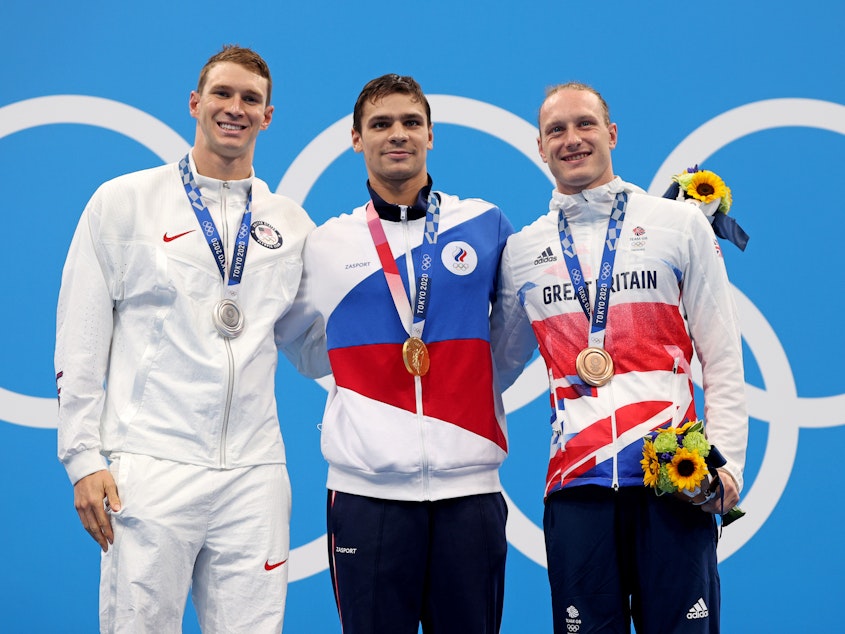U.S., U.K. Swimmers Bemoan Doping After Russian Takes Gold In Men's Backstroke Event

The second- and third-place finishers in the 200-meter men's backstroke final — Ryan Murphy of Team USA and Great Britain's Luke Greenbank, respectively — lamented the ongoing specter of doping in Olympic swimming following their race Friday.
It was an awkward time for them to get a question about the possible use of banned substances.
Sitting between them at the post-race press conference was the man who had just won gold, Evgeny Rylov of Russia, a country currently under sanctions related to its recent history of cheating.
Neither Murphy nor Greenbank directly accused Rylov of doping. But both said it was frustrating not to know if any of their competitors had a drug-induced advantage.
Earlier in the day, Murphy told reporters: "It is a huge mental drain to go through the year knowing that I'm swimming in a race that's probably not clean."
Sponsored
At the press conference, he softened his tone but still expressed frustration. "Congratulations to Evgeny, congratulations to Luke. They both did an incredible job. They're both very talented swimmers. They both train real hard, and they've got great technique," Murphy said. "At the end of the day, I do believe there's doping in swimming."
Russia's sporting federation is currently serving a two-year ban from international competition after the World Anti-Doping Agency said Russian authorities were guilty of a "blatant breach" of the conditions for reinstatement from an earlier ban related to systematic doping. The agency had originally imposed a four-year ban for the new infractions, but the Court of Arbitration for Sport reduced the term.
Under the ban, athletes are blocked from representing the Russian Federation in the Tokyo Olympics, just as athletes at the last Winter Olympics were barred from wearing their national uniforms. In Japan, Russians are competing on a team called the Russian Olympic Committee.
"Obviously, it's frustrating as an athlete, having known that there's a state-sponsored doping program going on, and feeling like maybe more could be done to tackle that," Greenbank said during the press conference.
In a translated tweet, the Russian Olympic Committee suggested its victories were "unnerving" its competitors and said that its athletes are participating in the Olympics whether people "like it or not."
Sponsored
During the press conference, Rylov denied doping and said he was in favor of a "clean competition.''
"I have always been tested, and I always fill out my documents," he said, according to a translation by The Guardian. "From the bottom of my heart, I am for clean sport." [Copyright 2021 NPR]



